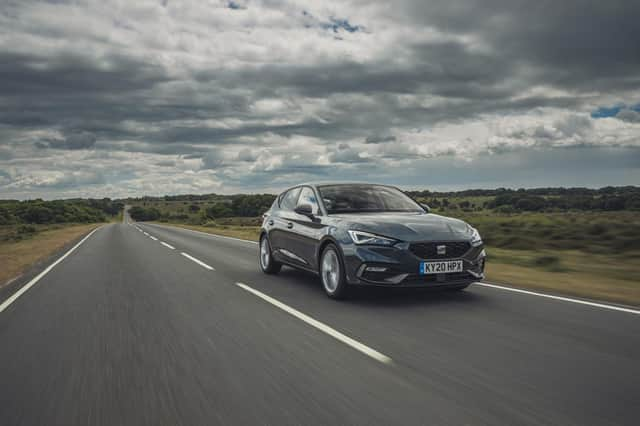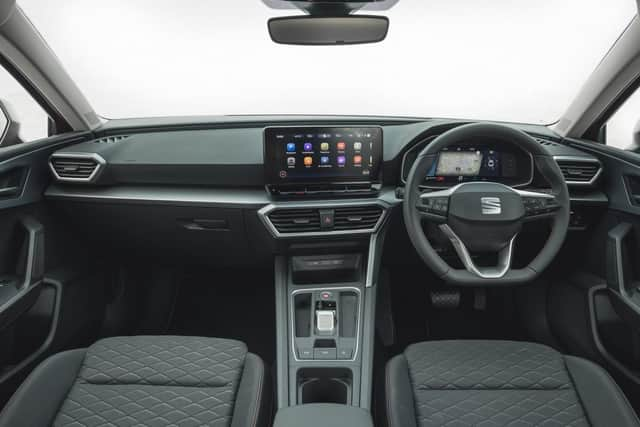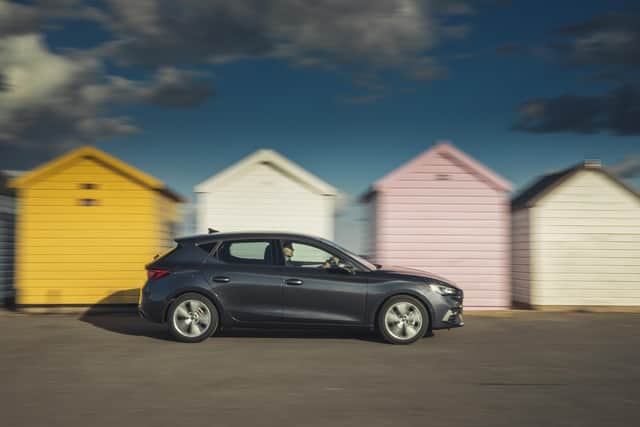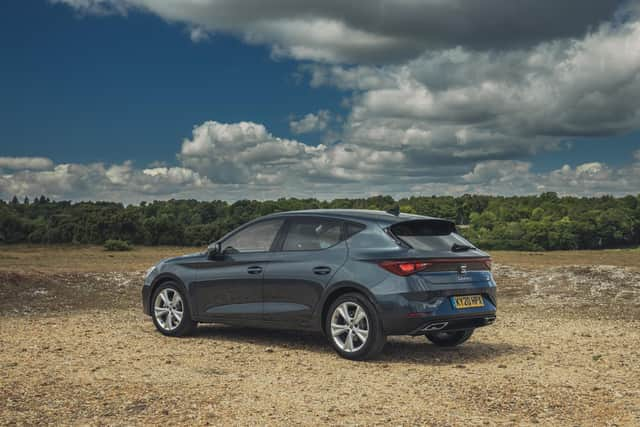Seat Leon e-Hybrid review: family hatchback makes the switch to a plug-in future


Say hola to the fourth generation of the Seat Leon
First launched in 1999, the family hatchback has proved a huge hit for the Spanish brand and remains its best seller even in this age of the SUV. But time marches on and so does the competition, so 2020 saw a brand new version launched to help it stay relevant.
On the surface it looks like a case of evolution rather than revolution, with a designer’s scalpel taken to the old shape to add some sharper edges and more defined lines. Underneath, though, there’s more passenger space than before, along with more advanced connectivity and an updated engine range that runs the full gamut from straight petrol or diesel to mild hybrid and the plug-in e-Hybrid you see before you.


Advertisement
Hide AdAdvertisement
Hide AdDriving the e-Hybrid is a combination of a 1.4-litre turbocharged petrol engine and a single electric motor. Even on its own the engine’s 148bhp is respectable but with the motor spinning as well, the Leon offers a healthy 201bhp. That’s enough to get the Leon to 62mph in 7.5 seconds and the setup feels responsive and punchy in almost any situation. Although it’s capable of haring around rapidly, the car will usually start in electric mode, offering around 115bhp, and stick there until a heavy foot prompts the engine into action, at which point the transition is pleasantly slick.
Consult Seat’s website and you’ll see outlandish claims of more than 200 miles per gallon. That might be what the official tests say but don’t expect anything like that on an actual road with an actual human at the wheel. That’s not to say the Leon’s economy isn’t impressive. Some lead-footed individuals had managed to get our test car’s long-term economy below 50mpg but I saw an effortless 67mpg on a fairly demanding cross-country run. Keep the battery topped up - which takes just under four hours on a home wallbox - and you should enjoy diesel-like economy without the societal shame.
At 12.8kWh, the battery is a useful size for the sort of short urban hops that make up much of many families’ regular motoring. I didn’t see near the claimed 40 miles of range but mid-20s during a particularly cold snap should translate into 30+ in better conditions. That’s enough for a few school runs and trips to the supermarket without using the petrol motor, although having to manage the hybrid/EV modes via the touchscreen rather than a physical button could take a bit of getting used to.
The lack of any drive mode button, or pretty much any other button is part of Seat’s effort to smooth out the car’s interior. Most functions are now controlled via either the steering wheel buttons or the 10-inch touchscreen. While this certainly makes for a clear, slick interior look, it means the infotainment system is overloaded with menus and isn’t always the easiest to use. Unfortunately, Seat has also seen fit to go down the same route as the new Golf and use unlit haptic “sliders” for heating control. Positioned flat beneath the touchscreen they’re easy to hit accidentally but hard to operate accurately.


Advertisement
Hide AdAdvertisement
Hide AdDigital instruments are standard on all hybrid cars, while even entry-level models get keyless entry, cruise control and lane keep assist. Our FR spec adds three-zone climate control and auto dipping LED headlights along with wireless phone, charging 17-inch alloys and sportier styling touches.
Don’t be fooled by the flat-bottomed steering wheel, deeper bodykit and twin exhausts, though, at more than 1,600kg, the Leon is no lightweight and despite our FR spec car’s “sports” suspension it never felt particularly dynamic. Quick in a straight line, yes, but not involving in the way that a Focus is. However, that’s a criticism that can be levelled at pretty much any car in the segment and if you just need a comfortable and sharply styled family hatch, then the Leon has the space and comfort you’d hope for, although the battery robs the boot of 110 precious litres.
That makes it slightly less practical than either a regular petrol Leon or some of its rivals but the impressive hybrid drivetrain makes up for that somewhat. If you can live with its smaller boot, buttonless interior and slightly inert handling, the Leon is a stylish, smooth and frugal option for the family.
Seat Leon FR e-Hybrid


Price: £30,970 (£31,115 as tested); Engine: 1.4-litre, four-cylinder, turbo, petrol with 85kW electric motor; Power: 201bhp; Torque: 258lb/ft; Transmission: Six-speed DSG automatic; Top speed: 137mph; 0-62mph: 7.5 seconds; Economy: 217.3-235.4mpg; CO2 emissions: 27g/km